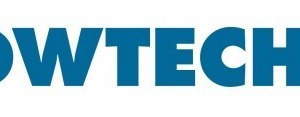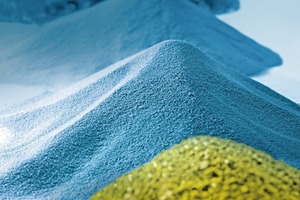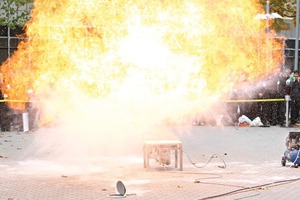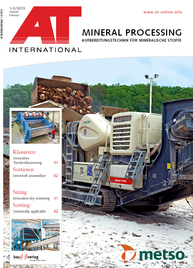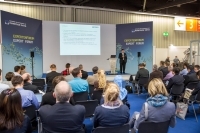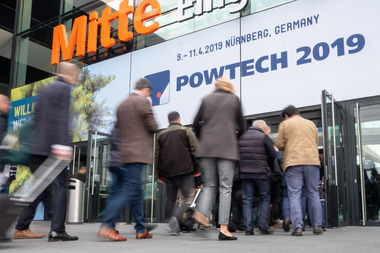POWTECH 2013 expects stable level of activity
Process engineers from all over the world meet again at POWTECH in Nürnberg from 23 to 25 April 2013 to discuss technological innovations in size reduction, dosing, mixing, screening and granulation of powders and bulk solids. More than 700 exhibitors are expected. Visitors can not only look forward to special topics on mechanical processing technologies, but also to synergies from the parallel events taking place in the exhibition centre: TechnoPharm, the International Trade Fair for Life Science Process Technologies Pharma – Food – Cosmetics, and PARTEC, the International Congress on Particle Technology, provide an extensive one-stop shop for handling powders and bulk solids.
There can be no question of a bad mood, says Claus Rättich, Member of the Management Board of NürnbergMesse, commenting on the impacts of the present economic situation on the coming POWTECH. “Although the economic prospects have become distinctly strained, we still expect the number of exhibitors and visitors at POWTECH to remain stable.” This optimism is supported by the production forecast of the Verband Deutscher Maschinen- und Anlagenbau e.V. (VDMA – German Engineering Federation). Even if the rest of the mechanical engineering sector will stagnate this year at the previous year’s level, the federation is still forecasting 5 % growth for the production of mechanical processing technology. For instance, the companies registered 30 % more new orders in the second quarter of 2012 than in the same period of the previous year, which was appreciably above the mechanical engineering average of minus 3 %. Caution is called for, however, despite all the positive assessments. The persistent uncertainties especially in Europe, but also the weakening economic situation in China, have become the number 1 obstacle to growth for the German producers of processing technology, as their export share of 70 % is slightly above the mechanical engineering average of 65 %, according to VDMA.
Explosions are among the most serious accidents in the industry, whether in chemical factories or grain mills: a risk of explosion exists wherever dust is stirred up. According to explosion protection rules, a dust layer of less than 1 mm uniformly distributed over the floor is sufficient to fill a room of normal height with an explosive dust-air mixture when stirred up. To stop things getting this far, process engineers can obtain rapid and intensive information about current trends in explosion protection at POWTECH 2013. The programme ranges from the INDEX Safety Congress, guided tours to the industry’s new products and brief presentations at the forum to live explosions that impressively show the importance of the innovations on the spot in the exhibition park.
The call for engineers in the industry is not to be overheard. VDMA expects the job expansion to continue in 2012. Development-intensive German industrial products like special machines are currently in strong demand on the world markets. This has caused the demand for engineers to shoot up. The POWTECH team has set up a job market at //www.powtech.de/jobs" target="_blank" >www.powtech.de/jobs:www.powtech.de/jobs to help companies recruit staff. Close cooperation with Leeds University in Great Britain and the Cluster of Excellence Engineering of Advanced Materials at the Friedrich Alexander University of Erlangen-Nürnberg has also been arranged at POWTECH 2013 to enable intensive dialogue between students, graduates, universities and exhibitors.
Whether in chemicals, pharmaceuticals or food, particles are major elements of the future. Paints that clean themselves or even produce power are only a few examples of how particles help to manufacture materials with revolutionary new properties. At PARTEC, the International Congress on Particle Technology that takes place in the Exhibition Centre Nuremberg parallel to POWTECH, leading particle specialists from all over the world meet every three years to discuss current trends. The congress in 2013 is under the direction of the renowned particle expert Prof. Jonathan P. K. Seville.

